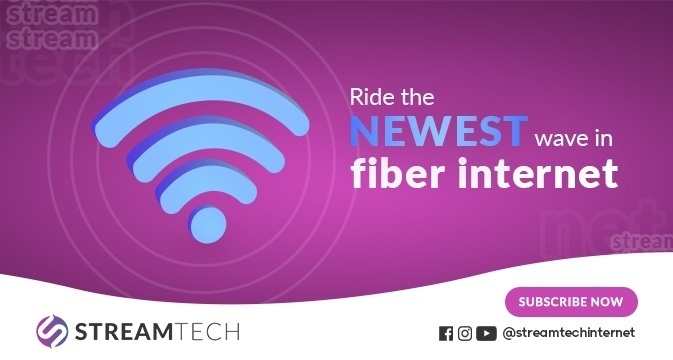Written by: Aiya Rodjel
Have you ever wondered what the National Telecommunications Commissions or NTC is for? Well, you are not alone. In this article, we’ll discuss this bureau’s roles in the country, most especially on improvements on internet connectivity. This will give you a better understanding of this government agency, and help you with telecommunications matters later on.
If you’re interested in fiber internet connection, knowing the significance of this organization will make you appreciate the bureau even better.
What is the National Telecommunications Commission anyway?
The establishment of the NTC was under Executive Order No. 546 promulgated on July 23, 1979. The creation of this government agency paved the way for the abolishment of the Board of Communications and the Telecommunications Control Bureau. Under this particular law, the commission was under the Ministry of Transportation and Communications.
Basically, the NTC is the sole body that has supervision, adjudication, and control over all telecommunications services in the Philippines. These include radio stations, wired or wireless telephone systems, cable companies, satellite television providers, and internet services. If you’re an internet service provider in the Philippines, you need to get permits and licenses from the NTC before starting operations.
The vision of the NTC is to become a world-class regulatory agency meeting the challenges of the digital world by the year 2025. Its mission is to maintain a responsive regulatory environment for an effective telecommunications/ICT sector.
Currently, the National Telecommunications Commission is an attached agency of the Department of Information and Communications Technology. It became an attached agency of the DICT when former President Benigno S. Aquino III signed Republic Act No. 10844.
To date, the National Telecommunication Commission works to make sure it reaches the Performance Pledge and E-Government Master Plan 2.0 (2016-2022). This Master Plan basically aims to improve processes in government, to provide better services to both citizens and businesses, as well as promote public participation.
Radio Control Law and Public Telecommunications Policy Act of 1995

It is important to understand that the NTC has regulatory and quasi-judicial functions. Technically, it is under the administrative supervision of the Department of Information and Communications Technology (DICT). However, the decisions the NTC makes are appealable to the Court of Appeals and the Supreme Court.
To understand the power of the NTC, you should look into the Radio Control Law. Also known as Republic Act 3846, this law gave the National Telecommunications Commission the mandate to regulate the installation, operation, and maintenance of radio stations both for private and public use.
Alongside the Public Telecommunications Policy Act of 1995, the NTC has the power to regulate and supervise the provision of public telecommunications services. It also has the mandate to manage the radio spectrum. Plus, it has supervision adjudication and control over the broadcasting stations.
Through executive order No. 546 and executive order No. 205, this sole body exercises jurisdiction over cable television and pay television.

Who runs the NTC?
Given the authority this particular agency has over the telecommunication environment of the nation, who is in charge of the NTC? Primarily, this agency is headed by a commissioner and has 4 divisions, 6 branches, and 15 regional offices.
Since 2009, when he was appointed by former president Gloria Macapagal Arroyo, the NTC has been under the supervision of Gamaliel Cordoba. The agency’s deputy commissioners are Edgardo Cabarios and Delilah Deles. The commission secretariat is Adriano Consunji. Deles is also the regional director of NTC’s National Capital Region office.
The main office of the National Telecommunications Commission is located in BIR Road, East Triangle, Diliman, Quezon City, Metro Manila, Philippines.
What are the main services under the NTC?
Fundamentally, the NTC offers a number of services related to telecommunications services. These include consumer welfare and protection, and issuance of permits.
The broadcast services division is primarily responsible for the issuance of permits to stations that allow them to purchase, possess, construct, and import. At the same time, gives the licenses for radio and television broadcast stations and cable television stations.
Amid the pandemic, the NTC was the subject of much controversy because the government didn’t grant media network giant ABS-CBN a permit to continue its operations in the country. It was also responsible for giving the newly formed Dito Telecommunications Corporation license to operate in the Philippines.
Meanwhile, the equipment standards division has the jurisdiction to issue the certificates and permits for communications equipment. Companies that want to bring in radio and telecommunications equipment have to be inspected and approved by this office before commencing operations.
The legal branch of this organization has the jurisdiction to handle all requests for blocking lost or stolen mobile phones. They also handle complaints on spam messages and other communication threats, and complaints regarding services from telecommunications service providers.
To streamline the process of obtaining licenses and permits, each region in the nation has NTC offices that issue operator certificates, permits, and licenses within their jurisdiction. It’s best for smaller companies to contact a regional office to speed up the process.
What does the NTC mean for Telecommunications Services?
Before a telecommunications entity is allowed to operate in the nation, it needs to secure a Certificate of Public Convenience and Necessity (CPCN) or authorization predicted on a valid congressional franchise. Obtaining this certificate is a lengthy process, which is why it took years for DITO Telecommunications to officially start operating within the archipelago.
While the agency is in charge of overseeing the entire telco industry in the nation, it is also in charge of other pressing matters that affect consumers. This includes the regulation over push messages, which are basically information transmitted to the mobile phone, either subscribed or unsolicited messages without a user request. These are initiated by the public telecommunications entity or content provider.
According to NTC Memorandum Circular No. 03-03-2005, push messages are only to be sent to the device of a subscriber who has given prior consent to such messages. This Memorandum details how people shouldn’t receive messages from unauthorized entities if you have not given them your approval.
This is an especially pressing matter in line with the upcoming elections. Some organizations have been using push messages to lobby their advocacies and candidates. In turn, the NTC is in charge of the maintenance of consumer consent. You shouldn’t receive messages unless you’ve given your official consent.
The same applies to spam messages, which can be an annoyance to a lot of everyday people. The NTC makes sure private and public entities don’t take advantage of the consumer information available to them. For the agency to address your concerns, you simply need to contact them through their website.
Mobile Number Portability

One recent triumph of the government agency is the implementation of mobile number portability. Mobile number portability has made it possible to switch mobile carriers without changing their mobile numbers. At the same time, people can switch from postpaid to prepaid or vice-versa without having to change their mobile numbers through this service.
This service was intended to be rolled on in the first quarter of the year. However, the ongoing pandemic has delayed its implementation.
Aside from mobile number portability, the agency is currently working on a way to make sure mobile load doesn’t expire. However, the newly implemented mobile number portability has caused some challenges as to the details of this law.
For more information on this service, you can visit the announcement page of their website. This details the regulations and protocols under this monumental service.
Internet speed

Despite being a nation full of people constantly on the internet, there are challenges as to the internet speed in the nation. Even people with fiber internet connections at home have difficulty with their internet speed.
In order for the internet speed within the nation to meet the demands of its users, the agency supervises the rollout plans of telecommunication companies. This government entity ensures the implementation of all plans, according to the intended timeline. Also, there’s regulation for the welfare of consumers all over the nation.
In turn, the NTC gives regular updates regarding internet speed within the nation. To date, they have been updating Filipinos on how much internet services in the country have improved thanks to their services.
While the telecommunication companies are in charge of the roll-out of these plans, what this National Telecommunications Commission basically does is to make sure they perform up to par with their promises. This ensures that these companies deliver all the services they advertise. Essentially, they hold these parties accountable on behalf of the Filipino people.
What does the NTC mean for radio stations?

At the same time, the National Telecommunication Commission is in charge of giving entities permission to procure radio communication equipment to for use in the Philippines. In order for entities to legally operate within the nation, they need to obtain a permit from NTC Regional Offices.
Basically, where you need to obtain a permit depends on your location within the nation. The rules apply to the operation of even small operations. The department makes sure only commercial type-approved/accepted equipment. The list of these tools of technology can be found in the Equipment Standards Division at the NTC Central Office.
Fortunately, regulations and the list of service offerings of the department are accessible through the internet. As long as you have fiber internet, you’ll be able to obtain all the information you need by simply going to their web page.
The organization is also in charge of monitoring all radio stations within the nation. It makes sure they perform up to industry standards and that these entities respect the environment of the Philippines.
In fact, through the National Telecommunications Commission, there had been a boost in distance learning system of the nation. Not all people within the nation have access to speedy internet connections. That’s why the government intervened by making educational programs mandated by the Department of Education available through radio stations.
Their intervention in the education sector has made it possible for Filipino children to have access to educational materials. Certainly, this is true especially in rural areas. And a lot of people who can’t afford online learning turned to radio learning instead. This is because radio access is far more affordable than an internet connection.
Building the Nation through Telecommunications Services

In essence, the National Telecommunications Commission makes sure all telecommunications and radio companies perform in accordance with the law. At the same time, the NTC makes sure there’s protection of the welfare of Filipino people. Addittionally, they ensure that people’s privacy is respected.
As a consumer, you have the right to receive the services you pay for. That includes a fast and reliable internet connection. In adherence to all the standards set by the NTC, we at Streamtech Fiber Internet always got your back.
One of the newest internet service providers in the Philippines, we empower households and businesses like you to make the most of your budget. We make sure you get to maximize your budget through our affordable fiber internet plans. With Streamtech, you can increase your productivity level at home and entertain yourself a the same time. We also offer cable-internet bundles through our partnership with Planet Cable.
We offer dedicated internet access, leased line, and WiFi services to subscribers in the franchise areas. Of course, this is through the power of our own fiber-optic backbone link. Through our budget-friendly fiber plans, subscribers can rest assured of having a fast and reliable connection. Thereby, they can seamless access online contents of their needs.
Indeed, we help make sure your entire household gets to experience the Streamtech difference. Our Extendifi WiFi Extender empowers your entire space with the speedy connection of Streamtech. Understand why more people across the nation have been making the switch, and exceeding their limits.
Connect with our team today to know more about services today. You may also visit the Streamtech official Facebook page for more details.









